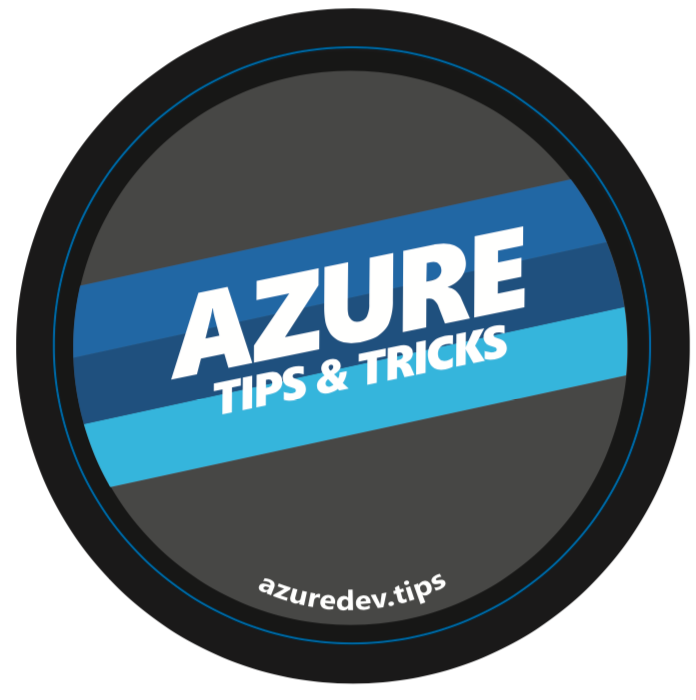TIP
💡 Learn more : Azure Cognitive Services (opens new window).
💡 Checkout Azure AI resources for developers (opens new window).
# Key Phrase Extraction with Cognitive Service and Azure
I recently took a look at Text Analysis that was introduced with Cognitive Services and is now inside the Azure portal. If you open the Azure portal and look for AI and Cognitive Services then you'll see the following:
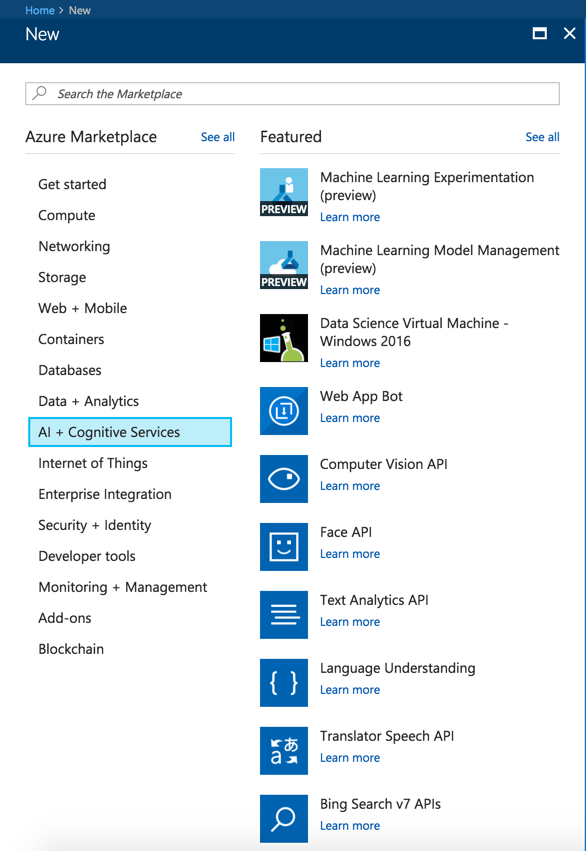
Let's give Text Analysis a spin. Open the blade and fill out the following info. Be sure to select the Free tier (F0) as shown below:
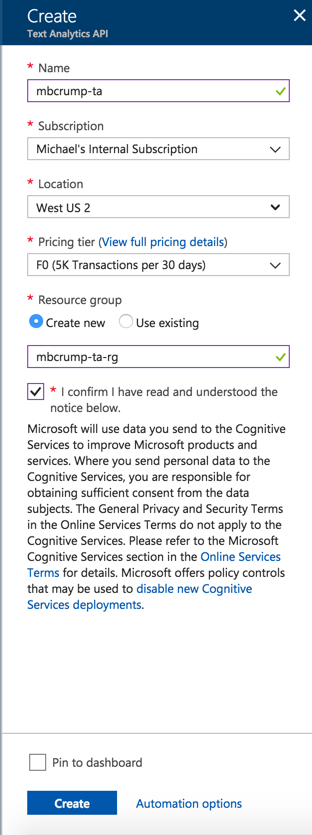
Select Keys and copy the value of Key 1.
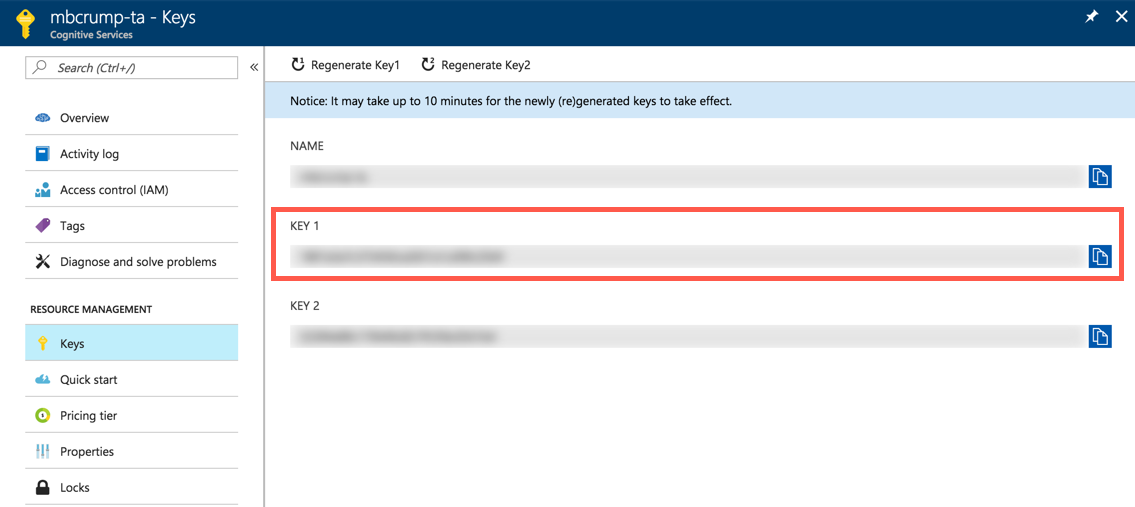
We'll use Postman (opens new window) to test. Go ahead and download it if you haven't already and once complete you'll use one of the following endpoints depending on what you want to use.
https://westus.api.cognitive.microsoft.com/text/analytics/v2.0/sentiment
https://westus.api.cognitive.microsoft.com/text/analytics/v2.0/keyPhrases
https://westus.api.cognitive.microsoft.com/text/analytics/v2.0/languages
2
3
We'll use the keyPhrases endpoint for learning purposes.
What are Key Phrases? They automatically extract key phrases to quickly identify the main points.
Copy the https://westus.api.cognitive.microsoft.com/text/analytics/v2.0/keyPhrases url into Postman and set the following three header properties:
- Ocp-Apim-Subscription-Key = should be your Key 1 (from our discussion earlier).
- Content-Type = Set it to application/json.
- Accept = Set it to application/json.
Your screen should look like the following:

Now switch over to Body, then Raw and post the following JSON (from some of my recent tweets):
{
"documents": [
{
"language": "en",
"id": "1",
"text": "Top 10 .NET Development Tweets that Broke the Web in 2017 - http://mcrump.me/2ot58Co #dotnet"
},
{
"language": "en",
"id": "2",
"text": "Setting up a managed container cluster with AKS and Kubernetes in the #Azure Cloud running .NET Core in minutes - http://mcrump.me/2op9mek #dotnet"
}
]
}
2
3
4
5
6
7
8
9
10
11
12
13
14
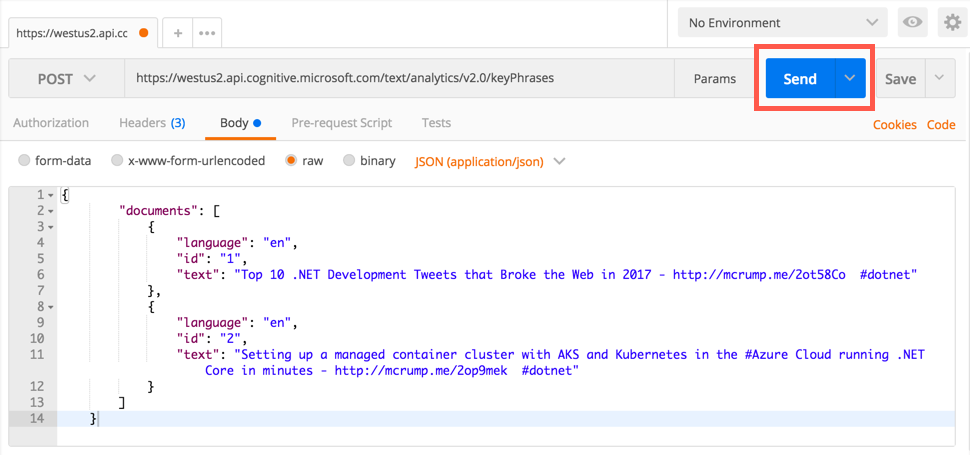
Now press Send and it will return key phrases from my tweets.
{
"documents": [
{
"keyPhrases": [
"Web",
".NET Development Tweets",
"dotnet"
],
"id": "1"
},
{
"keyPhrases": [
"Kubernetes",
"Azure Cloud",
"minutes -",
"AKS",
".NET Core"
],
"id": "2"
}
],
"errors": []
}
2
3
4
5
6
7
8
9
10
11
12
13
14
15
16
17
18
19
20
21
22
23
